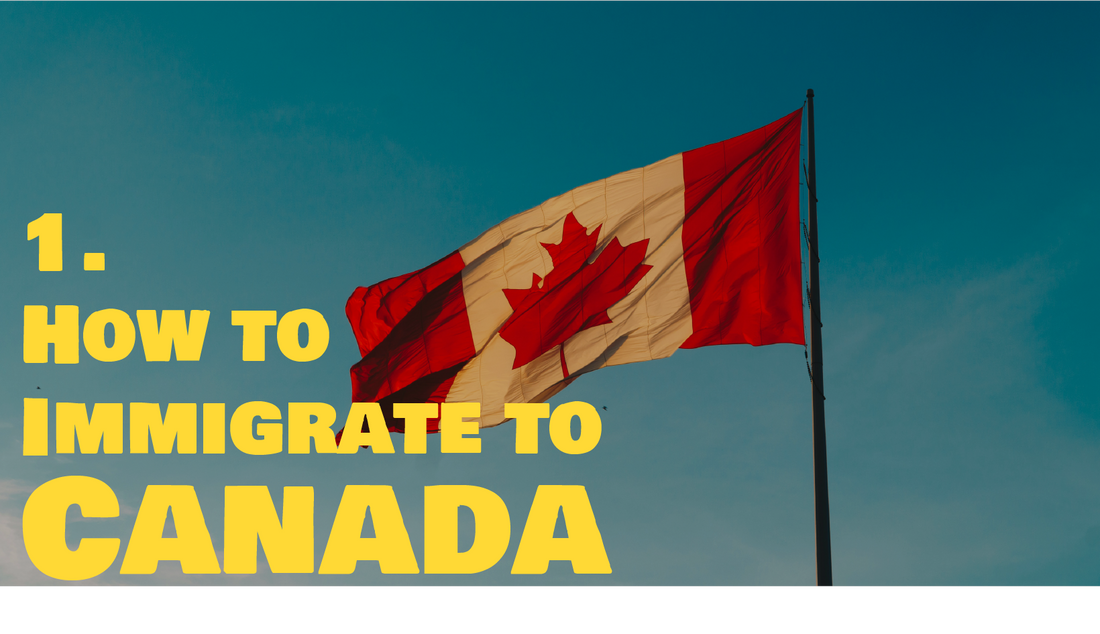
#1. How to Immigrate to Canada
Canada is set to welcome 485,000 new permanent residents in 2024, with that number rising to 500,000 in both 2025 and 2026. This ambitious plan focuses on boosting economic growth, supporting family reunification, and responding to global humanitarian needs.
Immigrants are crucial to Canada's economy, filling essential roles in sectors like healthcare, STEM, trades, transportation, and agriculture. They bring the skills needed to achieve important goals, such as moving toward a green and digital economy. Family reunification also plays a key role, as having family support can significantly improve newcomers' well-being and economic stability. Additionally, Canada's strong tradition of offering protection to those in need continues through various humanitarian programs.
But welcoming newcomers isn’t just about numbers. It also involves ensuring that the necessary supports, such as housing and healthcare, are in place. To make this happen, Immigration, Refugees and Citizenship Canada (IRCC) has started working closely with different levels of government, partners, and stakeholders to create a coordinated approach to immigration.
Pathways to Canadian Immigration
There are several pathways to immigrate to Canada, each designed to meet different needs and goals. Here are some of the most common:
- Express Entry
- Provincial Nominee Program (PNP)
- Family Sponsorship
- Business Immigration
Below, we’ll briefly introduce each pathway, with detailed articles to follow in the coming weeks. Stay tuned by following us on our social media channels, which can be found at the bottom of this page.
1. Express Entry
Express Entry is an online system that manages applications for skilled workers who want to become permanent residents of Canada. It covers three main immigration programs:
- Canadian Experience Class: For skilled workers with Canadian work experience gained in the last three years.
- Federal Skilled Worker Program: For skilled workers with foreign or Canadian experience who meet specific education and other criteria.
- Federal Skilled Trades Program: For workers qualified in a skilled trade, with a valid job offer or a certificate of qualification.
Learn more about Express Entry.
2. Provincial Nominee Program (PNP)
If you're eligible for one of the Express Entry programs, you can also apply through the Provincial Nominee Program (PNP). A nomination from a province can give you extra points, speeding up your invitation to apply.
The PNP is for workers who have the skills, education, and experience to contribute to a specific province or territory and want to live there permanently. Each province has its own streams (targeted programs) and requirements.
Contact D&D Law to learn more about Ontario’s specific streams and how they might fit your situation.
3. Family Sponsorship
Family Sponsorship allows Canadian citizens and permanent residents to sponsor their loved ones. Eligible family members include:
- Spouse or common-law/conjugal partner - learn more
- Dependent children, including adopted children - learn more
- Parents and grandparents - learn more
- Orphaned siblings, nephews, nieces, or grandchildren (in specific situations)
Find out more about Family Sponsorship on the IRCC website.
4. Business Immigration
Canada is always looking for investors, business managers, and entrepreneurs. The Business Immigration Programs offer several pathways, including:
- Federal Business Immigration Programs
- Provincial Nominee Programs for Business (e.g., Ontario Immigrant Nominee Program)
- Start-Up Visa Program
- and more…
Explore Business Immigration options on the IRCC website.
______________________
This overview covers some of the most common pathways to immigrate to Canada. For more detailed information, follow our blog as we dive deeper into each pathway.
If you’re eager to get started, don’t hesitate to contact D&D Law in Mississauga, Ontario, for a free consultation!
Until our next article, take care and stay amazing! 🍁
D&D Law